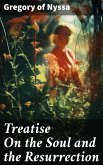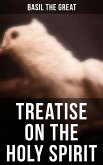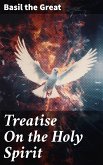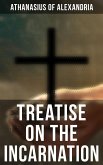In "Treatise On the Soul and the Resurrection," Gregory of Nyssa engages deeply with the metaphysical implications of the human soul's nature and its ultimate resurrection. Written in the 4th century, this theological work exemplifies the rich traditions of early Christian thought while drawing on Platonic and Neoplatonic influences. Gregory employs a dialectical style, utilizing both philosophical reasoning and theological reflection to articulate his views on the immortality of the soul, the resurrection of the body, and the transformative power of divine grace. Through meticulous argumentation, he addresses the existential anxieties of his contemporaries, advocating for a hopeful understanding of life after death grounded in Christian doctrine. Gregory of Nyssa, a leading figure of the Cappadocian Fathers, was shaped by both his education in classical philosophy and the theological debates of his era. His own experiences, including the loss of family and the sociopolitical turmoil of the time, inspired his exploration of life, death, and the soul's journey. A bishop and a mystic, Gregory's writings reflect a compelling synthesis of faith and reason, illustrating his commitment to understanding the human condition within a Christian framework. This treatise is highly recommended for readers interested in early Christian theology, philosophy, and the development of doctrines related to the soul and resurrection. Through Gregory's eloquent prose and profound insights, readers will gain a deeper appreciation for the intricate relationship between the soul's nature and the promise of resurrection, making it a significant contribution to both religious studies and metaphysical discourse.
Dieser Download kann aus rechtlichen Gründen nur mit Rechnungsadresse in A, B, BG, CY, CZ, D, DK, EW, E, FIN, F, GR, H, IRL, I, LT, L, LR, M, NL, PL, P, R, S, SLO, SK ausgeliefert werden.









